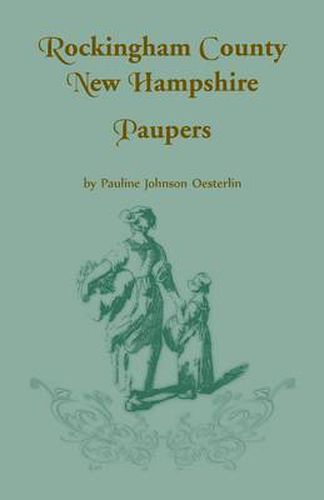Readings Newsletter
Become a Readings Member to make your shopping experience even easier.
Sign in or sign up for free!
You’re not far away from qualifying for FREE standard shipping within Australia
You’ve qualified for FREE standard shipping within Australia
The cart is loading…






Early New Hampshire laws required that the towns support those who could not do so themselves, if they had not been warned out of town ninety days before their dependence would begin. Later, the counties were given some responsibility in the maintenance of the poor. This work serves as an index to records found in the New Hampshire State Archives, listing people who were in a position to be supported by Rockingham County or by a town. The entries are arranged alphabetically, and include the name, date and source of support, and the box and document numbers of the records. The reader may use these reference numbers to locate many other documents related to the people listed here. These documents can include: records of warnings out; affidavits in which the applicants describe their reason for asking for support; town records of support; descriptions of the applicants’ lineages; burial records; and vital records. According to the author, this work will be an especially valuable reference to women, who frequently were left as widows with children and could not support themselves. Many Negro names are also included.
$9.00 standard shipping within Australia
FREE standard shipping within Australia for orders over $100.00
Express & International shipping calculated at checkout
Early New Hampshire laws required that the towns support those who could not do so themselves, if they had not been warned out of town ninety days before their dependence would begin. Later, the counties were given some responsibility in the maintenance of the poor. This work serves as an index to records found in the New Hampshire State Archives, listing people who were in a position to be supported by Rockingham County or by a town. The entries are arranged alphabetically, and include the name, date and source of support, and the box and document numbers of the records. The reader may use these reference numbers to locate many other documents related to the people listed here. These documents can include: records of warnings out; affidavits in which the applicants describe their reason for asking for support; town records of support; descriptions of the applicants’ lineages; burial records; and vital records. According to the author, this work will be an especially valuable reference to women, who frequently were left as widows with children and could not support themselves. Many Negro names are also included.